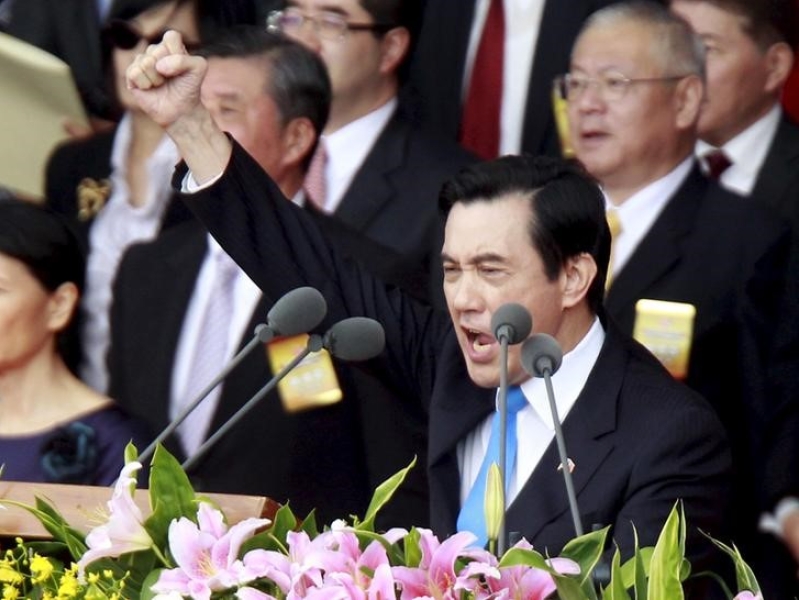
The presidents of Taiwan and China will meet in Singapore on Saturday to discuss cross-strait issues, Taiwan's presidential office said, in the first such meeting of leaders from the two sides since the Chinese civil war ended in 1949.
Taiwan President Ma Ying-jeou will fly to Singapore to meet with Chinese President Xi Jinping, the presidential office said in a statement.
The meeting comes at a politically sensitive time in Taiwan, with elections for a new president and legislature being held on Jan. 16.
China's Taiwan Affairs Office said in a statement: "The mainland's attitude on a meeting between leaders from both sides of the Taiwan Strait is positive and consistent. If there is news on this, we will issue it in a timely manner."
The purpose of Ma's trip was to "consolidate cross-strait peace and maintain the status quo", his office said. Ma would not sign any agreements, nor issue any joint statements with China during the trip, it added.
Taiwan's cabinet would meet with leaders of parliament and the island's political parties on Wednesday to discuss the trip.
Taiwan's Mainland Affairs Council, the island's top China policymaking body, will hold a press conference on Wednesday, while Ma will hold a news briefing on Thursday, the presidential office said.
Ma's pro-China Nationalist Party, known as the Kuomintang (KMT), is trailing in opinion polls behind the main opposition Democratic Progressive Party, which traditionally favors independence and is loathed by the Chinese Communist Party.
Chiang Kai-shek's Nationalists fled to Taiwan following their defeat by Mao Zedong's Communists at the end of the Chinese civil war.
Since then Taiwan has been self-ruled, but China deems the island a breakaway province to be taken back, by force if necessary, particularly if it makes moves toward independence.
Previous Chinese attempts to influence Taiwan's elections have backfired.
In 1996, then-Chinese President Jiang Zemin ordered live fire missile tests and war games in the seas around Taiwan to try and intimidate voters not to back Lee Teng-hui, who China believed was moving the island closer to formal independence.
The crisis brought the two sides to the verge of conflict and prompted the United States to sail a carrier task force through the Taiwan Strait in a warning to Beijing.
Lee won the election by a landslide.
In March this year, Ma flew to Singapore to pay his respects after the death of the city-state's first prime minister, Lee Kuan Yew, a diplomatically sensitive visit given China's stance that Taiwan is a renegade province.
China, which maintains a good relationship with Singapore, holds that there is only "One China" and Taiwan is part of it.
However, Singapore also maintains a close, informal relationship with Taiwan and the two signed a free trade pact in 2013.







